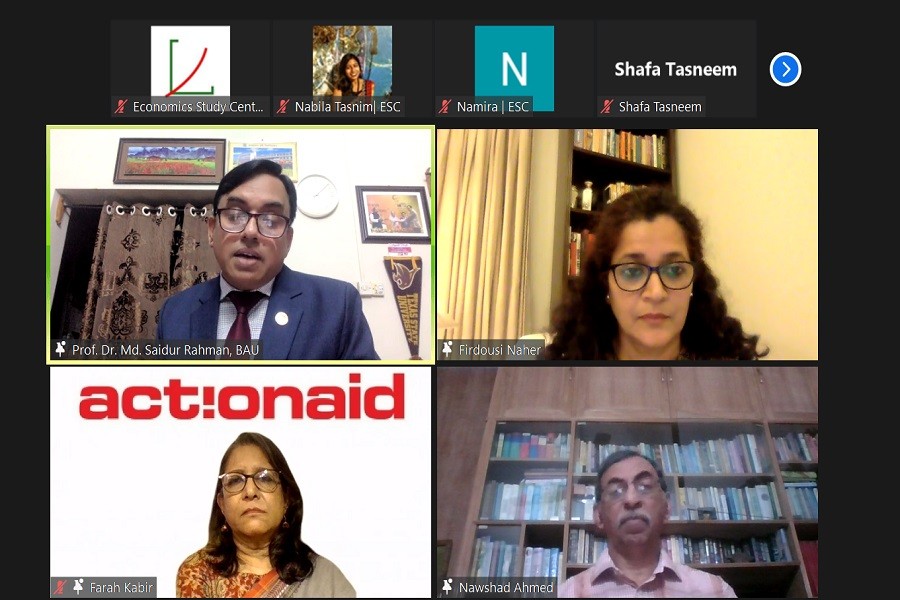The liveability of the cities is of crucial concern while ensuring the well-being of the inhabitants and setting a benchmark for planning and implementing sustainable habitation for the whole country.
The third and final panel discussion of the 4th Bangladesh Economic Summit took place on 1st March 2022. The topic of the discussion was - “Reimagining rural-urban spaces and sustainable cities.”
The discussion was chaired by Dr Firdousi Naher, Professor, Department of Economics, University of Dhaka.
Dr Mohammad Saidur Rahman, professor, Department of Agricultural Economics, Faculty of Agricultural Economics and Rural Sociology, Bangladesh Agricultural University; Dr Nawshad Ahmed, economist, urban planner and former UN official; and Ms Farah Kabir, country director, ActionAid Bangladesh were the panellists for the session.
At the beginning of his statement, Dr Nawshad Ahmed drew attention to the fact that urbanisation is not always bad for a city and that it brings along business, technological and infrastructural developments with it.
However, he also stated that urbanisation increases inequality and this problem is even more severe in our country.
“Government must implement policies in order to tackle this ever-growing problem of inequality that’s been happening”, said he.
Later in his statement, Dr Ahmed said, “Many of the problems of urbanisation are related to the centralised system of the country.”
He then drew examples from some of the Latin American countries and said that our country is still not ready for the rapid urbanisation that has been going on because the service sector is yet to prove its capability to facilitate it.
He also added that development planning should be designed by the local government bodies to tackle the problems of urbanisation.
Ms Farah Kabir started her statement by focusing on the poor condition of the slums of Dhaka city and said, “Dhaka wasn’t planned to provide services to so many people.”
She said problems related to noise pollution and waste management are on the rise and the government has not come up with adequate policies to address these problems.
Ms Kabir also talked about the fact that the vulnerability of the people living in the slums has increased during the pandemic and the government is yet to come up with plans for creating spaces for participation.
According to Farah Kabir, “Social cohesion needs to increase by several folds to handle any problem in the near future.”
Dr Md Saidur Rahman mentioned the importance of protecting the agricultural lands for rural improvement.
He further said, “Government policies should be designed to meet the needs of rural people in order to control the rapid urban migration.”
Dr Saidur also emphasised the importance of green space and said that it provides the opportunity to enhance sustainability and the appearance of environmental benefits.
While addressing some of the questions from the students, Dr Ahmed said, “The present policies in any way aren’t really helping the less-privileged population of the cities.”
He suggested the government make plans to cover the partial cost of housing for the slum dwellers or even try to relocate them to the outskirts of the cities and provide them with a good transportation network.
He also mentioned the importance of several social protection programs such as maternal health programmes for the less-privileged population of our country.
Ms Farah Kabir said, “Government monitoring must increase more on the private sectors during this pandemic.”
To summarise the discussion, Dr Naher mentioned that we should think about building smart cities and that we need champions who come out of the traditional ways of doing things and radically change the system.


